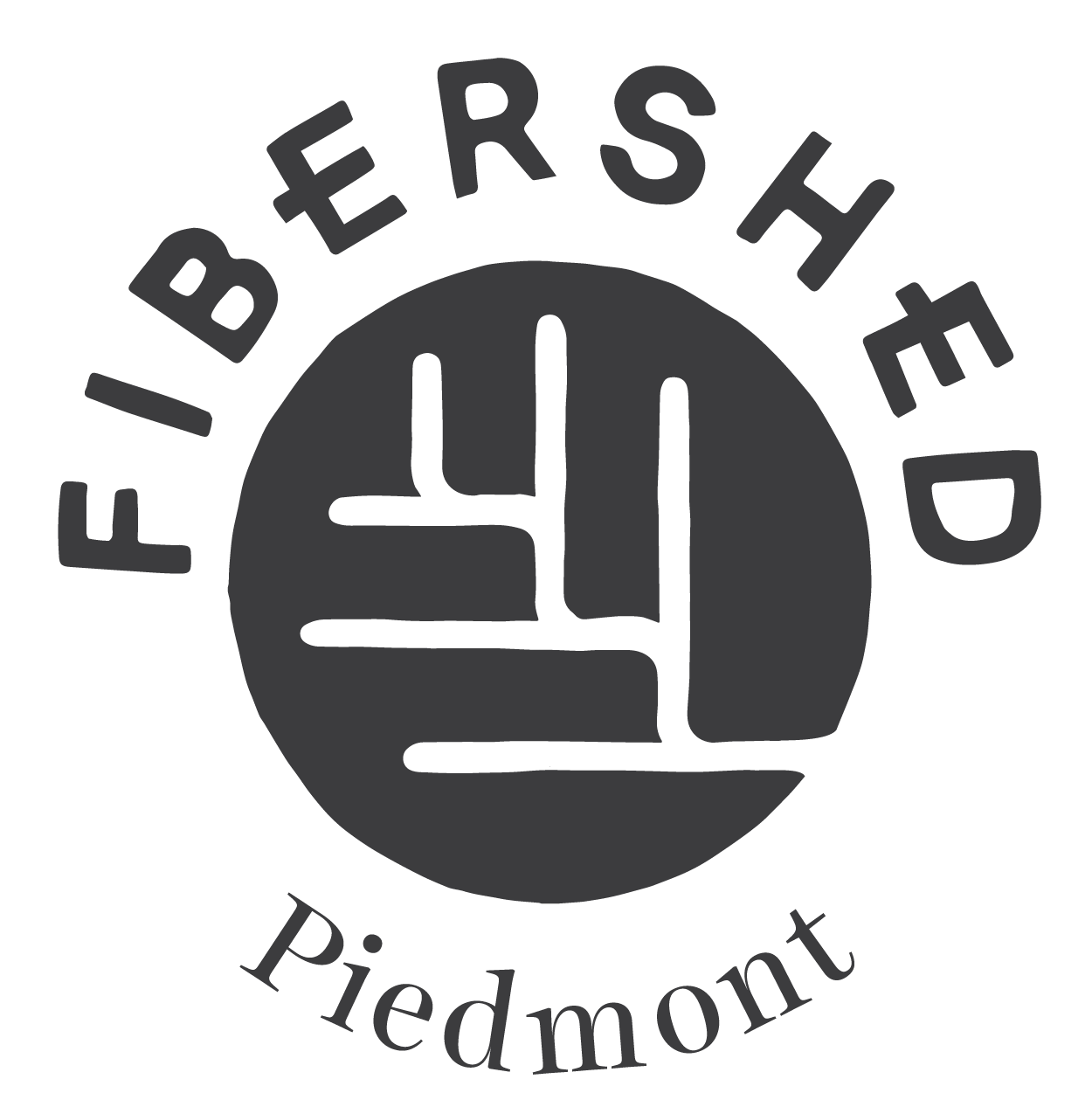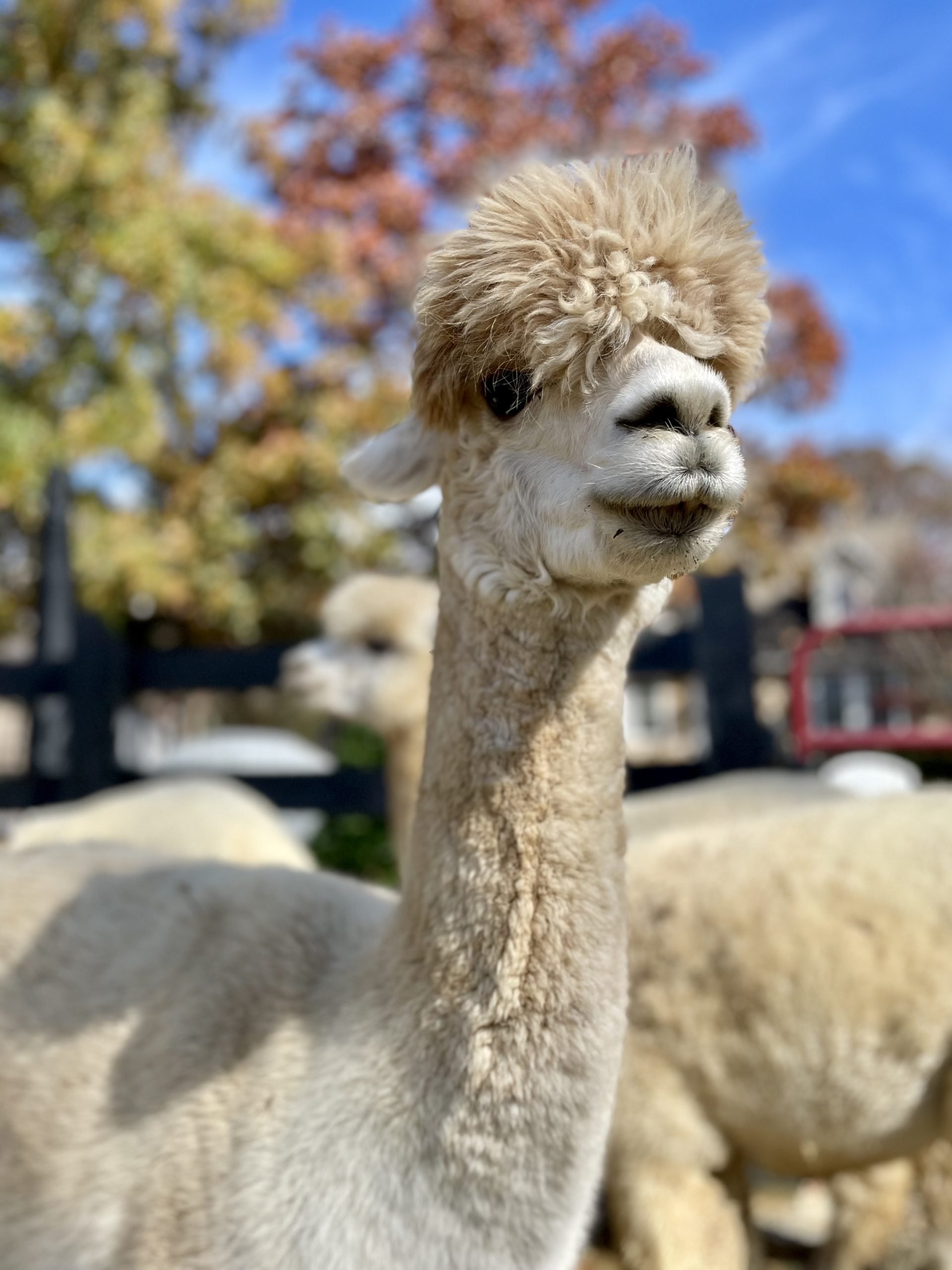
Upcoming Community Events
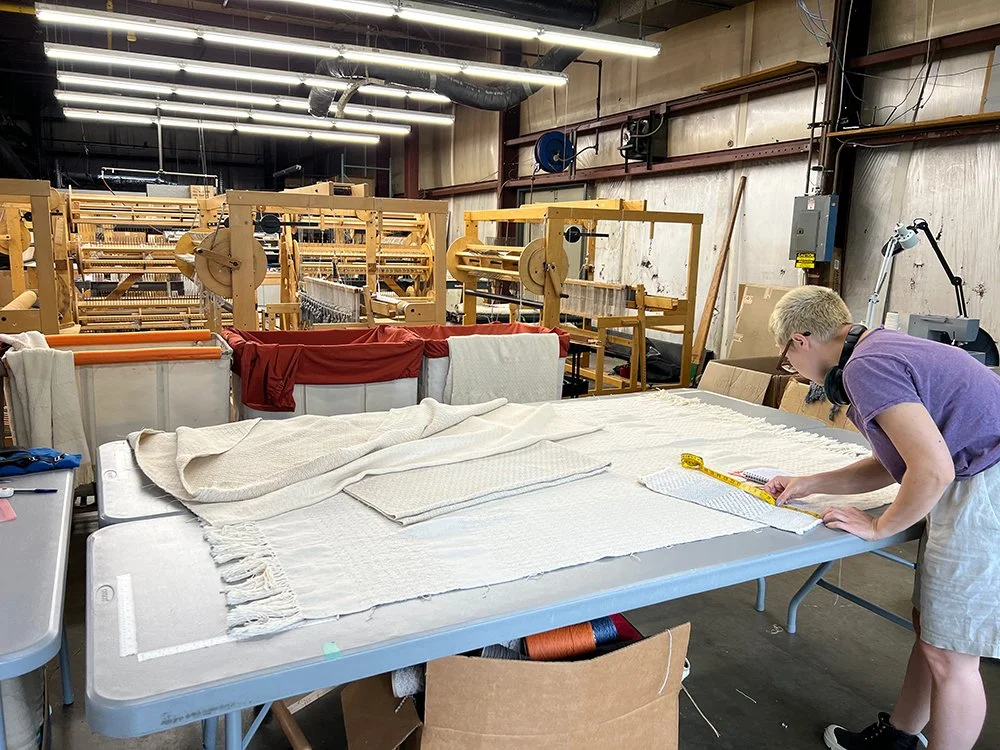
Crafting & CoWorking
Join us in the Burlington space for fiber work, handcraft, and digital projects as we create and cultivate a welcoming place where ideas can grow. Bring your stitching, knitting, spinning, unfinished objects, writing, or laptop work. This is time set aside for slow making, quiet focus, and the gentle power of working in community.
This gathering meets on the first and third Thursdays of each month.
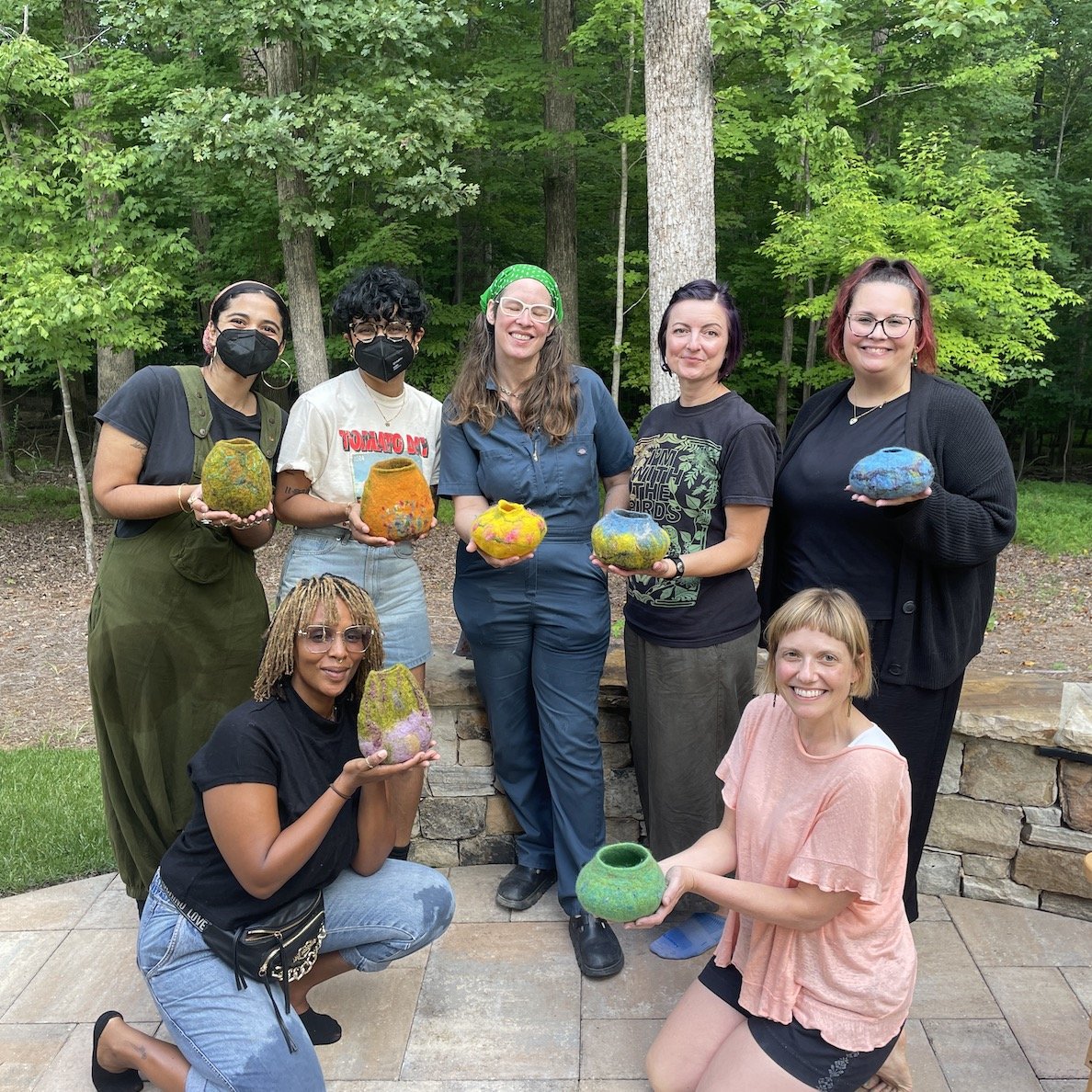

Crafting & CoWorking
Join us in the Burlington space for fiber work, handcraft, and digital projects as we create and cultivate a welcoming place where ideas can grow. Bring your stitching, knitting, spinning, unfinished objects, writing, or laptop work. This is time set aside for slow making, quiet focus, and the gentle power of working in community.
This gathering meets on the first and third Thursdays of each month.
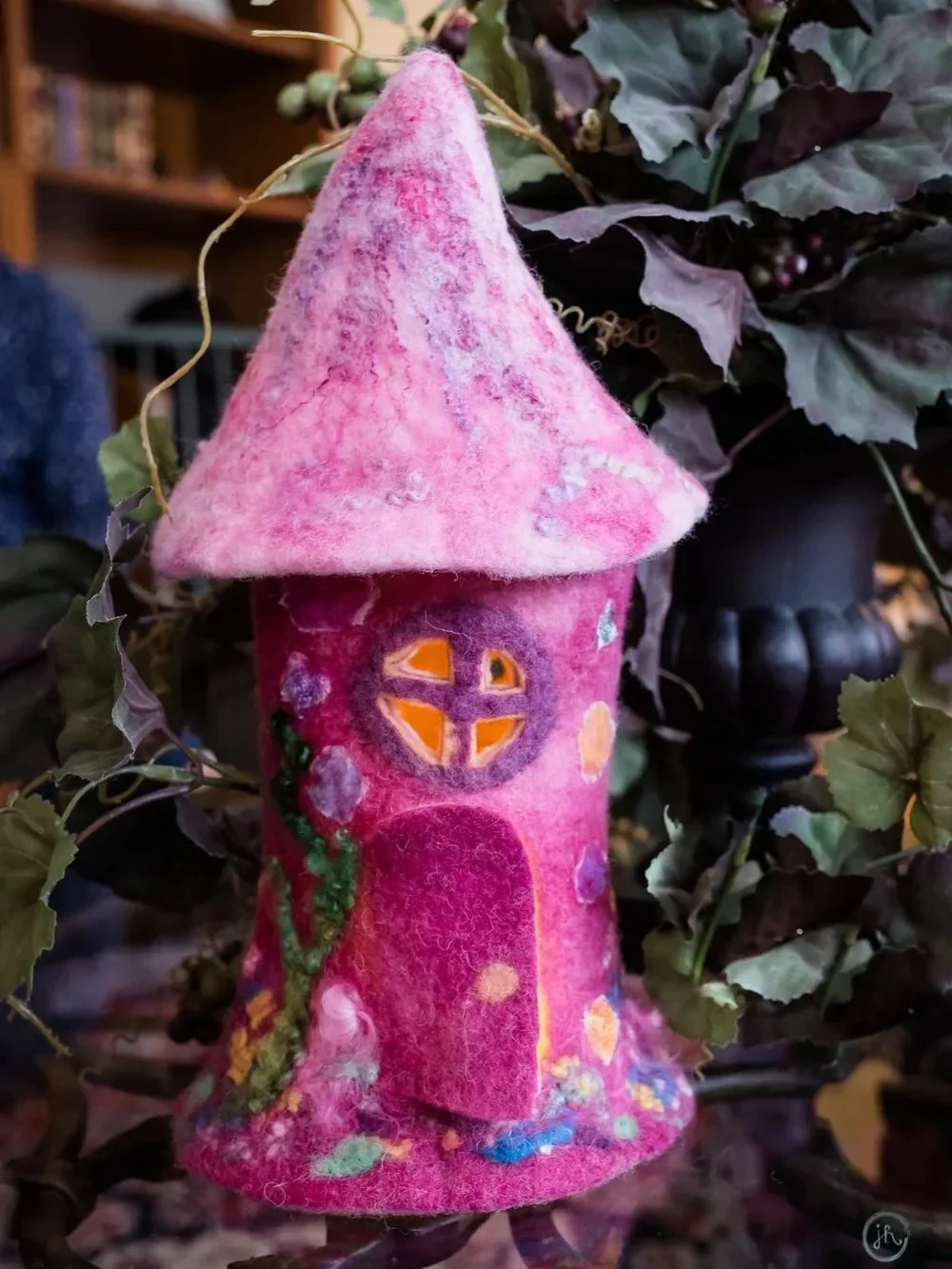
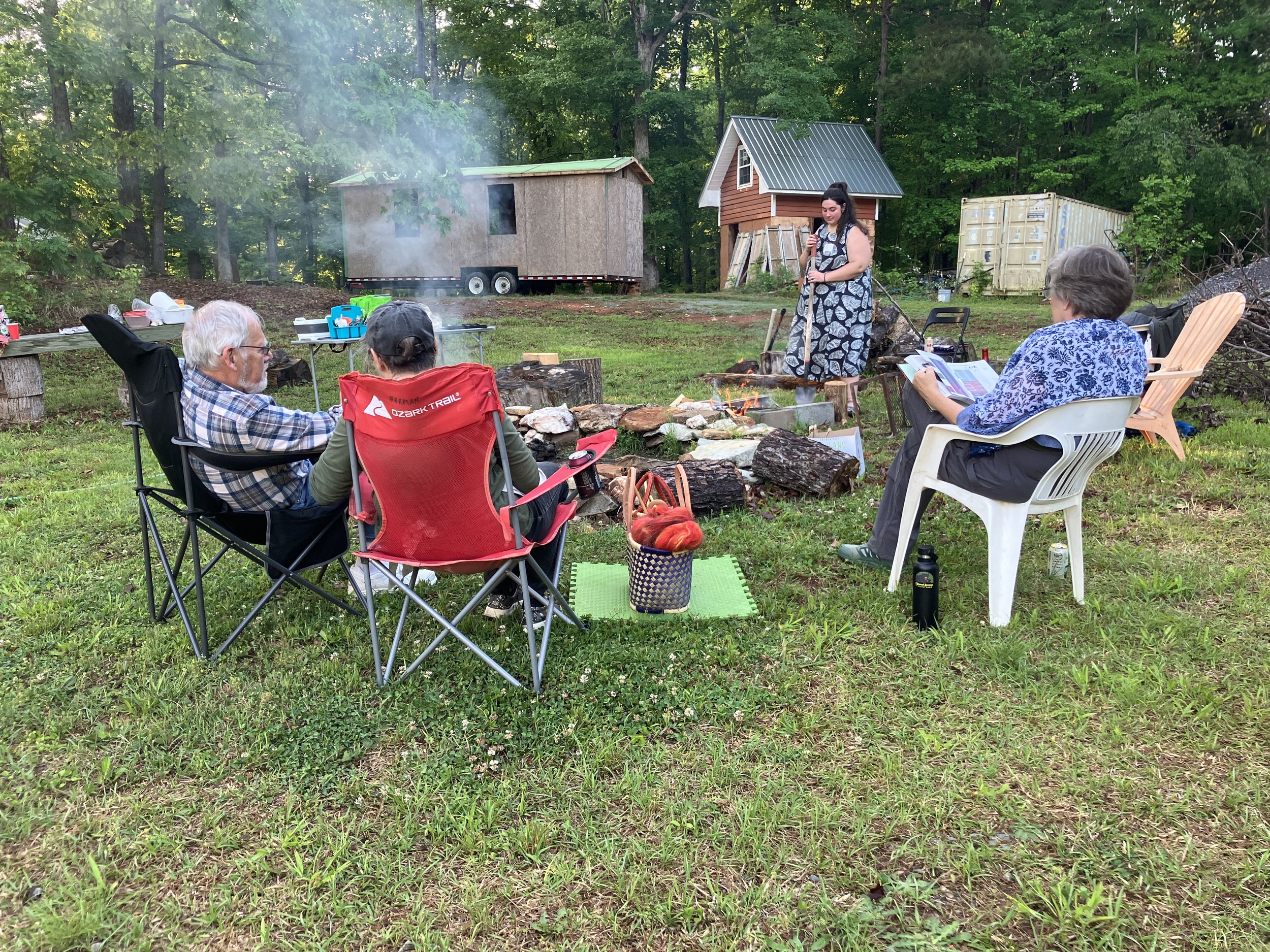
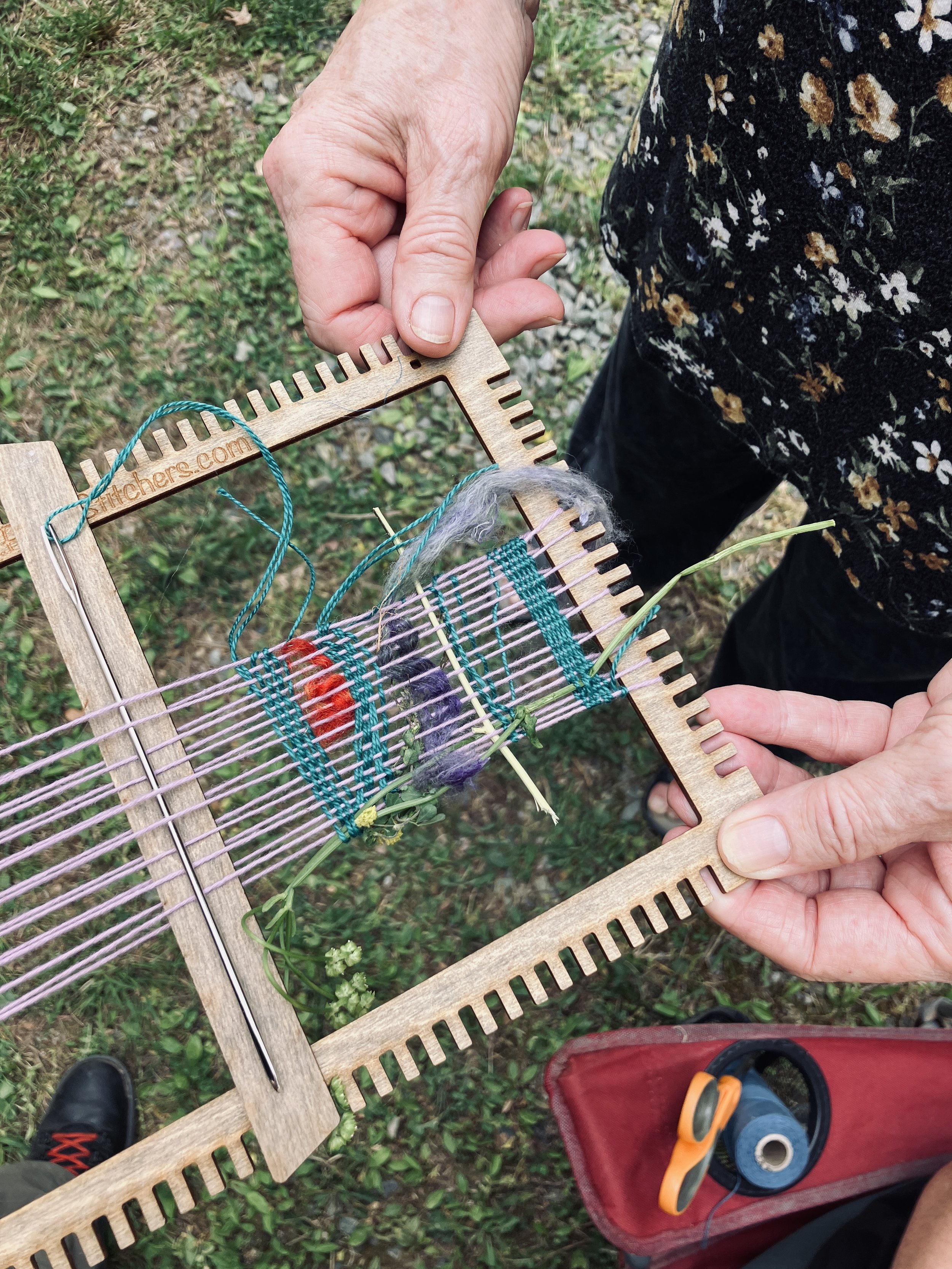
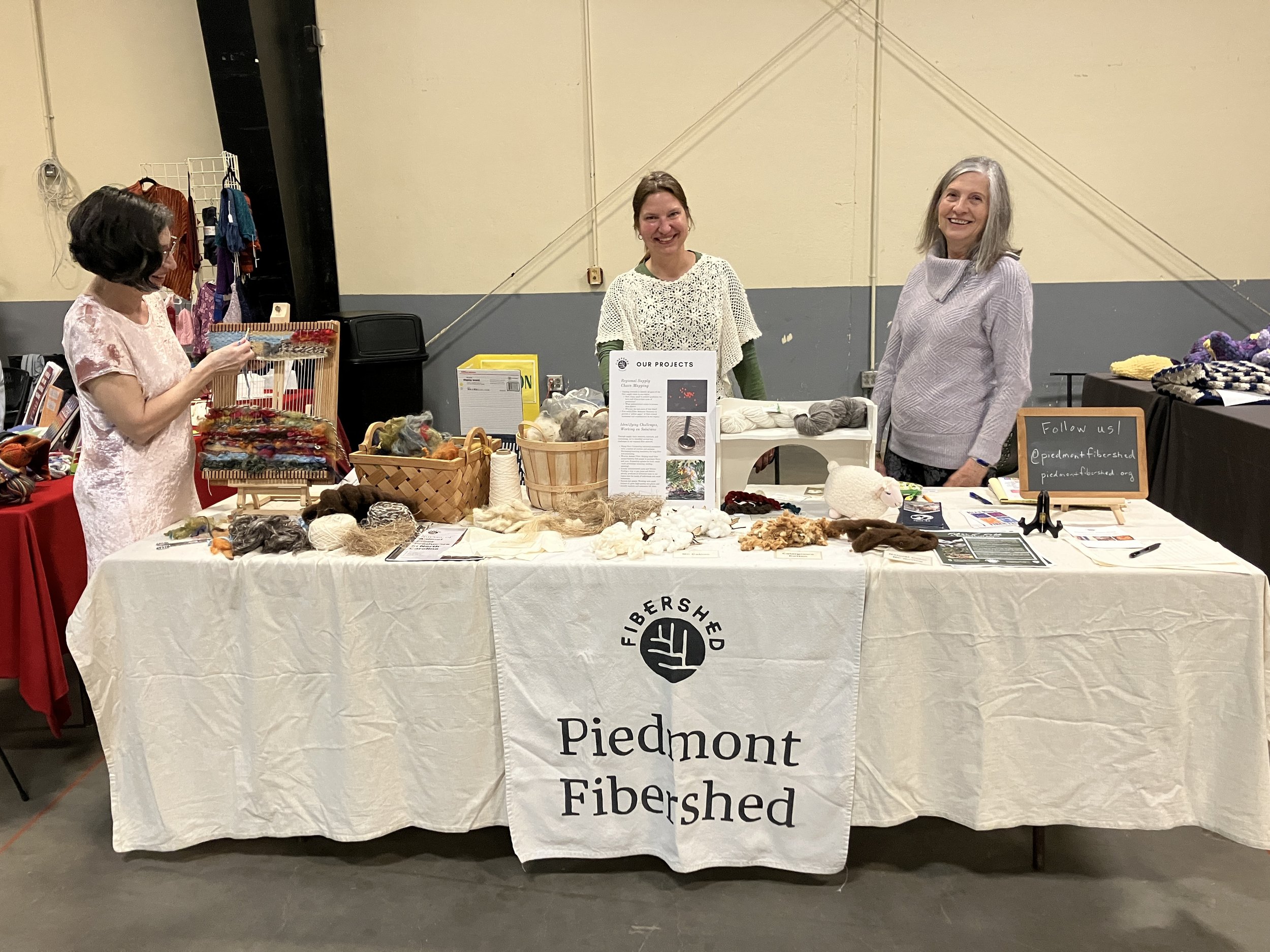
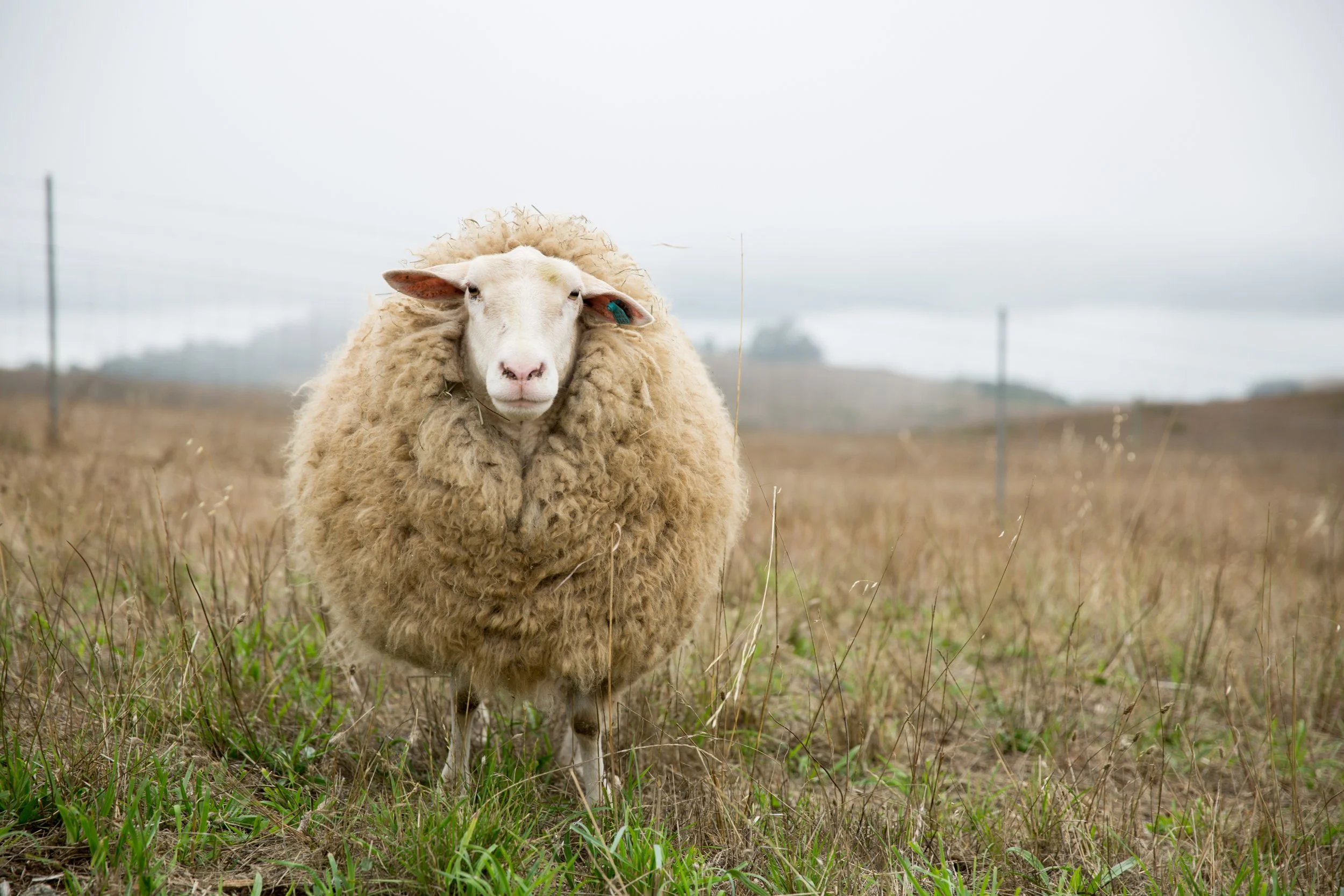
Piedmont Fibershed Virtual Meetup
Join our virtual meetup session to find out how you can help out Piedmont Fibershed!

Crafting & CoWorking
Join us in the Burlington space for fiber work, handcraft, and digital projects as we create and cultivate a welcoming place where ideas can grow. Bring your stitching, knitting, spinning, unfinished objects, writing, or laptop work. This is time set aside for slow making, quiet focus, and the gentle power of working in community.
This gathering meets on the first and third Thursdays of each month.

Piedmont Fibershed Virtual Meetup
Join our virtual meetup session to find out how you can help out Piedmont Fibershed!

Sax Flax Sundays
Sax Flax Workdays at The Sanctuary Barn invite community members to step into a living practice of sustainable fiber cultivation. Join us for hands-on sessions supporting regional flax production and shared learning in the textile economy’s regenerative future. Volunteers will help process flax and tend materials together in a collaborative, thoughtful environment that honors both land and craft.
Sessions take place on the 2nd and 3rd Sundays of November and December, 3–5pm
Dates: 11/9, 11/16, 12/14, 12/21
Location: The Sanctuary Barn, 280 Holt Road, Graham, NC
Interested in joining this growing circle of makers and growers? Email Zeke Overbaugh to sign up.

Sax Flax Sundays
Sax Flax Workdays at The Sanctuary Barn invite community members to step into a living practice of sustainable fiber cultivation. Join us for hands-on sessions supporting regional flax production and shared learning in the textile economy’s regenerative future. Volunteers will help process flax and tend materials together in a collaborative, thoughtful environment that honors both land and craft.
Sessions take place on the 2nd and 3rd Sundays of November and December, 3–5pm
Dates: 11/9, 11/16, 12/14, 12/21
Location: The Sanctuary Barn, 280 Holt Road, Graham, NC
Interested in joining this growing circle of makers and growers? Email Zeke Overbaugh to sign up.

Piedmont Fibershed Virtual Meetup
Join our virtual meetup session to find out how you can help out Piedmont Fibershed!

Piedmont Fibershed Winter Gathering
Gather with us for a cozy get-together of crafting, storytelling, and community to celebrate winter! You are invited to bring your own craft project or partake in one of our activity tables, and we'll have a Show and Tell in which participants are invited to share a recent project or a story about what fibers or textiles mean to them. We'll also provide updates on Piedmont Fibershed's projects and a preview of what's to come in 2026. Warm beverages provided; please bring a snack to share.

Courtesy Post: Saxapahaw Holiday Market
Support local businesses and shop for unique gifts!
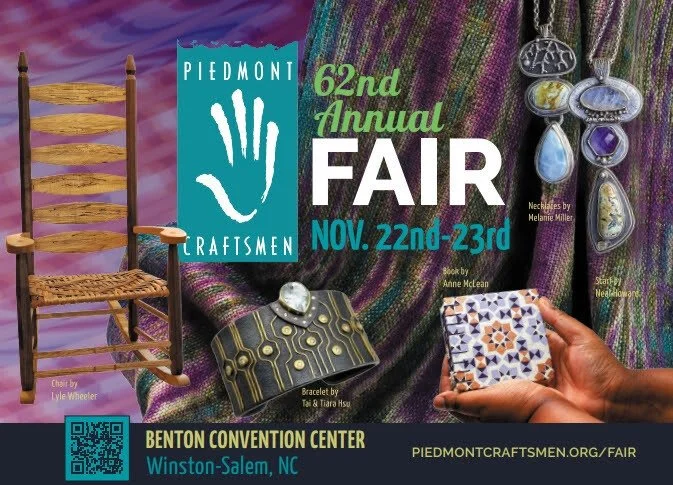
Piedmont Craftsmen’s Fair
Stop by the table at the Piedmont Craftsmen’s Fair in the Benton Convention Center!

Courtesy Post: Southern Oral History Program Student Intern Presentations
This fall, students participating in the Southern Oral History Program at UNC-Chapel Hill will share the results of their internship research on the Southern textile industry. In collaboration with Project Threadways, a nonprofit dedicated to craft preservation, cultural heritage, and creative placemaking, students conduct oral history interviews and research to document the stories of individuals whose work and lives have shaped textile production in the American South.
Presentations will explore how memory, narrative, and place converge in the history of Southern textile craft and consider broader questions of labor, economy, identity, and cultural expression. Join us for this symposium to celebrate the voices and histories that continue to shape the Southern textile landscape.

Sax Flax Workdays
Sax Flax Workdays at The Sanctuary Barn invite community members to step into a living practice of sustainable fiber cultivation. Join us for hands-on sessions supporting regional flax production and shared learning in the textile economy’s regenerative future. Volunteers will help process flax and tend materials together in a collaborative, thoughtful environment that honors both land and craft.
Sessions take place on the 2nd and 3rd Sundays of November and December, 3–5pm
Dates: 11/9, 11/16, 12/14, 12/21
Location: The Sanctuary Barn, 280 Holt Road, Graham, NC
Interested in joining this growing circle of makers and growers? Email Zeke Overbaugh to sign up.
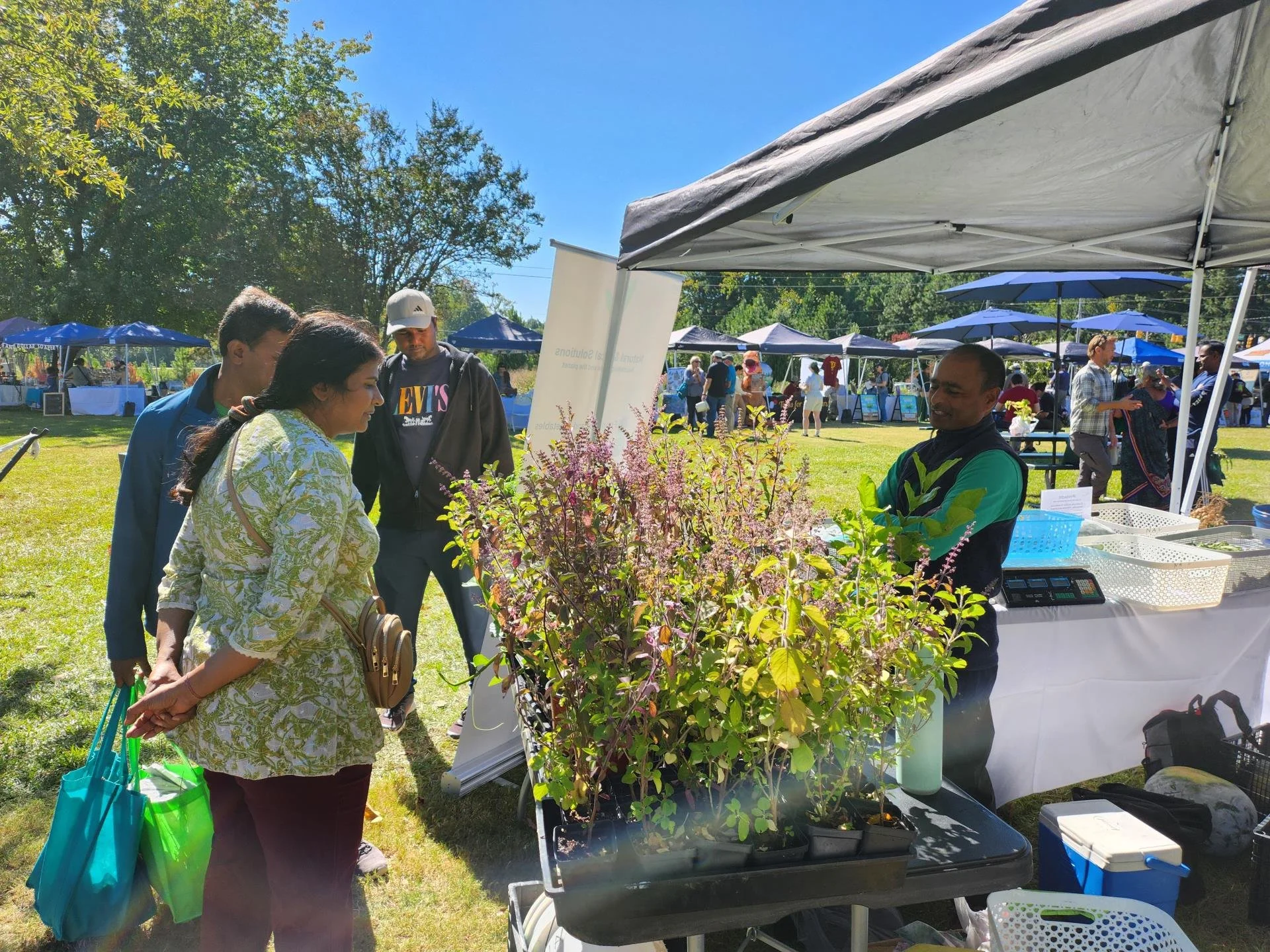
Cary Harvest Festival
Join us for the annual Harvest Fest at Good Hope Farm, a seasonal celebration held twice each fall. Set on our historic, organic working farm, the festival offers a unique blend of local culture, sustainability, and good old-fashioned fun.

Sax Flax Workdays
Sax Flax Workdays at The Sanctuary Barn invite community members to step into a living practice of sustainable fiber cultivation. Join us for hands-on sessions supporting regional flax production and shared learning in the textile economy’s regenerative future. Volunteers will help process flax and tend materials together in a collaborative, thoughtful environment that honors both land and craft.
Sessions take place on the 2nd and 3rd Sundays of November and December, 3–5pm
Dates: 11/9, 11/16, 12/14, 12/21
Location: The Sanctuary Barn, 280 Holt Road, Graham, NC
Interested in joining this growing circle of makers and growers? Email Zeke Overbaugh to sign up.
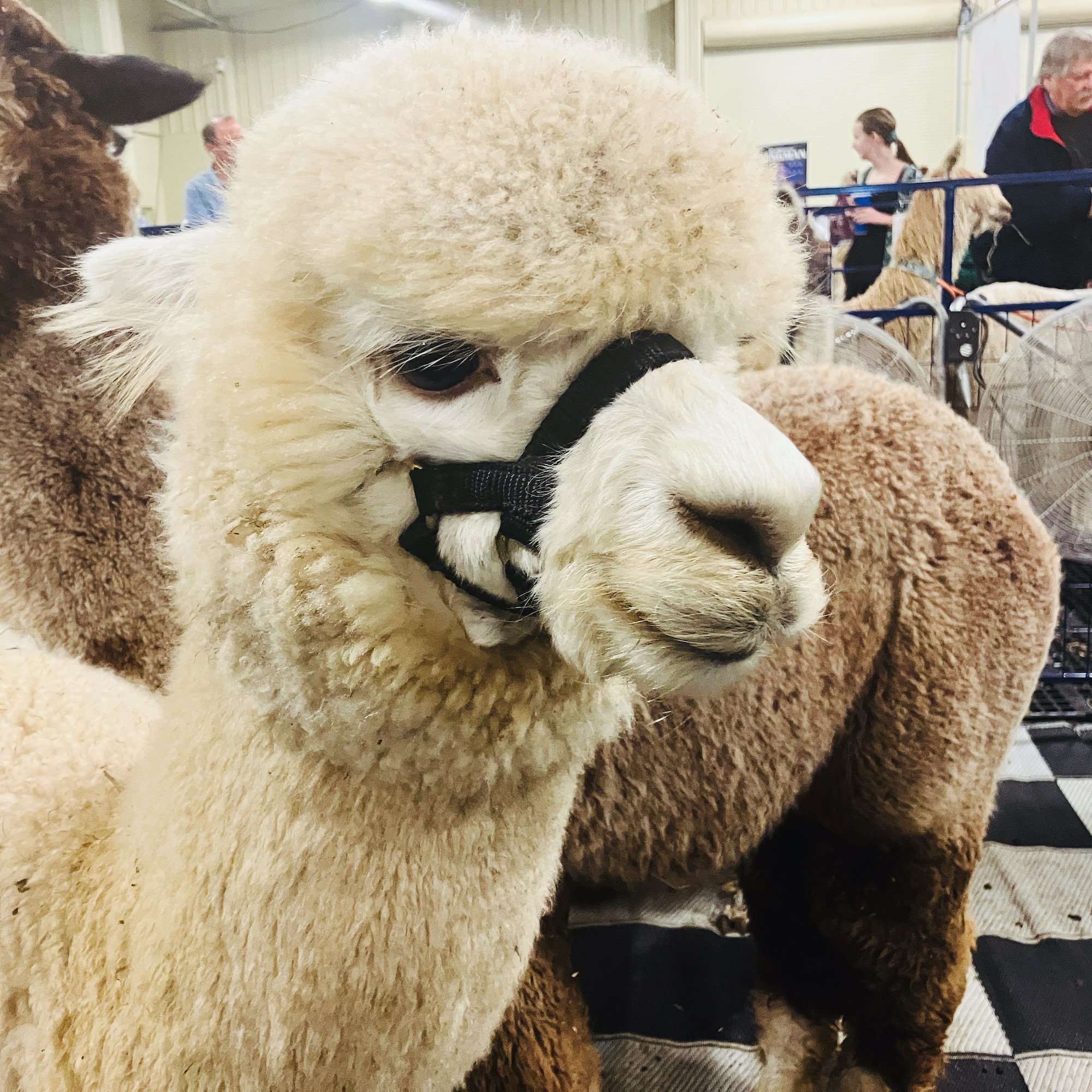
Piedmont Fibershed Virtual Meetup
Join our virtual meetup session to find out how you can help out Piedmont Fibershed!
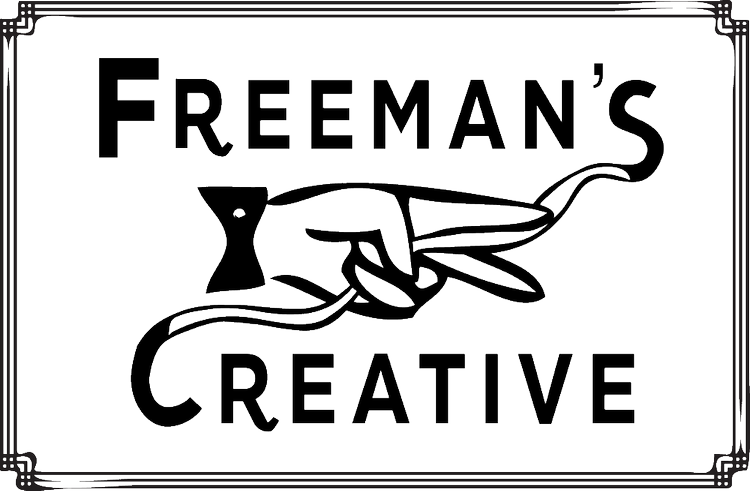
Freeman’s Fall Festival
Join us for a vibrant afternoon celebrating local fiber, craft, and community at the Annual Fall Festival at Freeman’s Creative Supply!

Courtesy Post: Triangle Weaver's Guild Show and Sale
The Annual Fiber Arts Sale & Show will take place at the Triangle Fiber Arts Center. Put it in your calendar now to make sure you don’t miss the opportunity to shop and see work from the best fiber artists in our region! We’ll also have weaving and spinning demos, and the classroom will be open to socialize and chat about the textile arts with new and old fiber friends.

Southeast Animal Fiber Fair
Stop by the Piedmont Fibershed table or join a workshop class to improve your skills or just enjoy browsing and shopping the beautiful and unique apparel and wearables!

Cary Harvest Festival
Join us for the annual Harvest Fest at Good Hope Farm, a seasonal celebration held twice each fall. Set on our historic, organic working farm, the festival offers a unique blend of local culture, sustainability, and good old-fashioned fun.
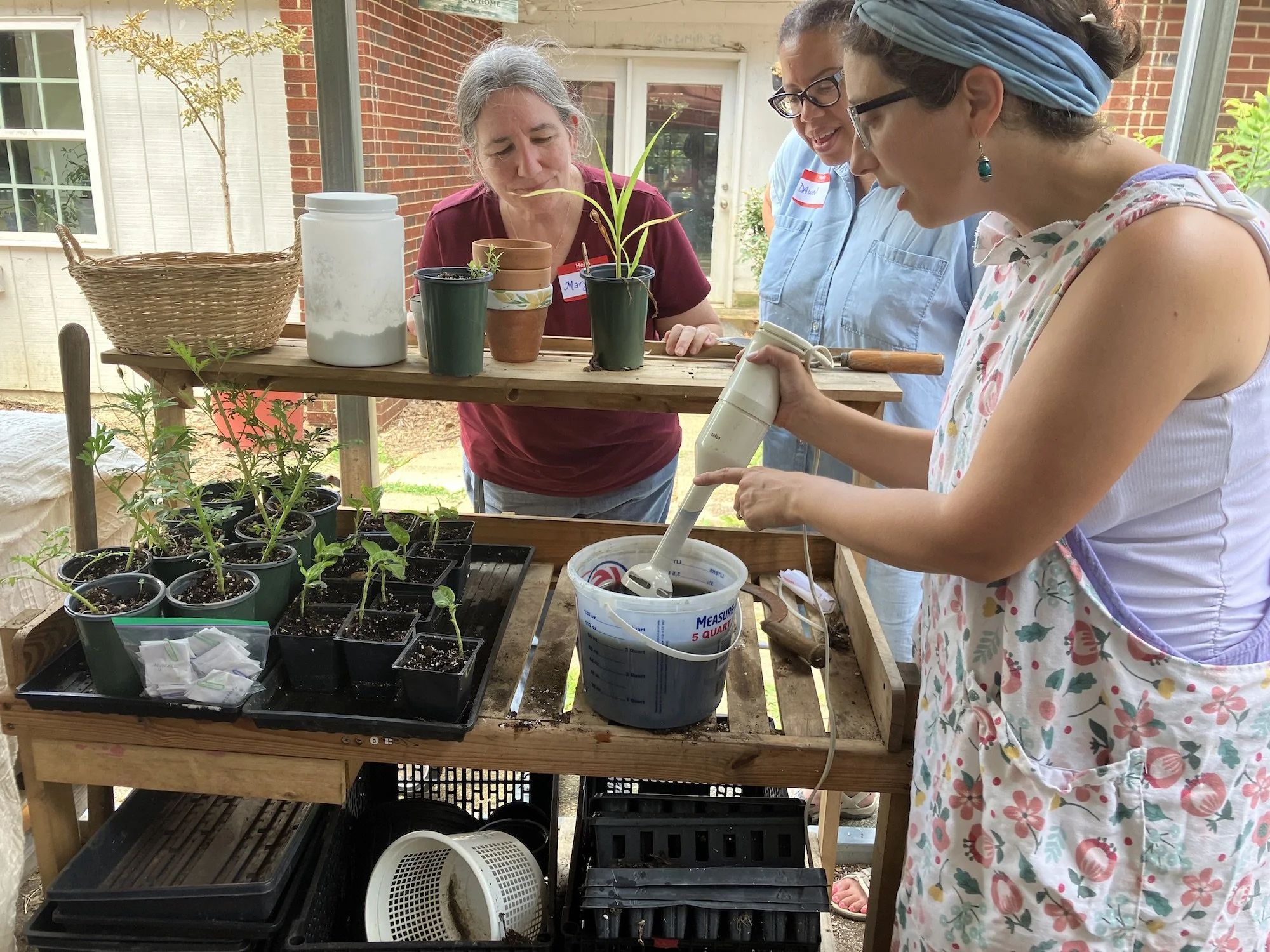
Virtual Volunteer Orientation Meet Up
Join our virtual volunteer session to find out how you can help out Piedmont Fibershed this Fall!
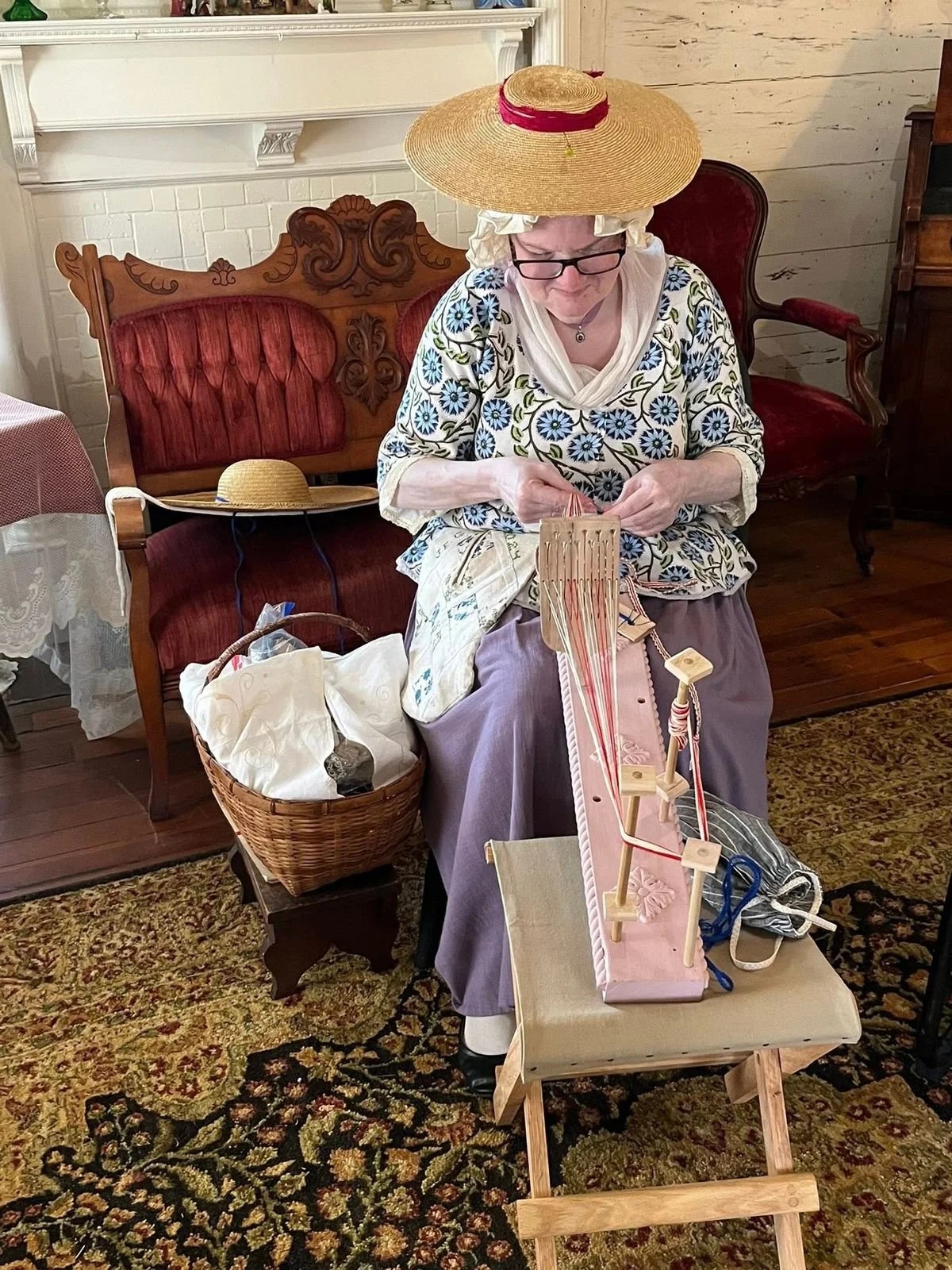
Textiles and Tar Heels Festival
Celebrate the textile heritage of early America in the historic mill village of Glencoe located along the Haw River. Living historians will demonstrate various aspects of the craftsmanship of that era with weaving, spinning, quilting and blacksmithing.
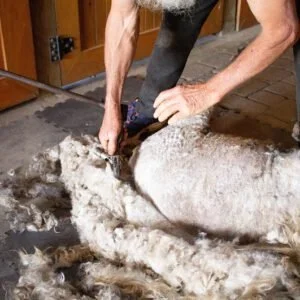

Virtual Volunteer Orientation Meet Up
Join our virtual volunteer session to find out how you can help out Piedmont Fibershed this Fall!
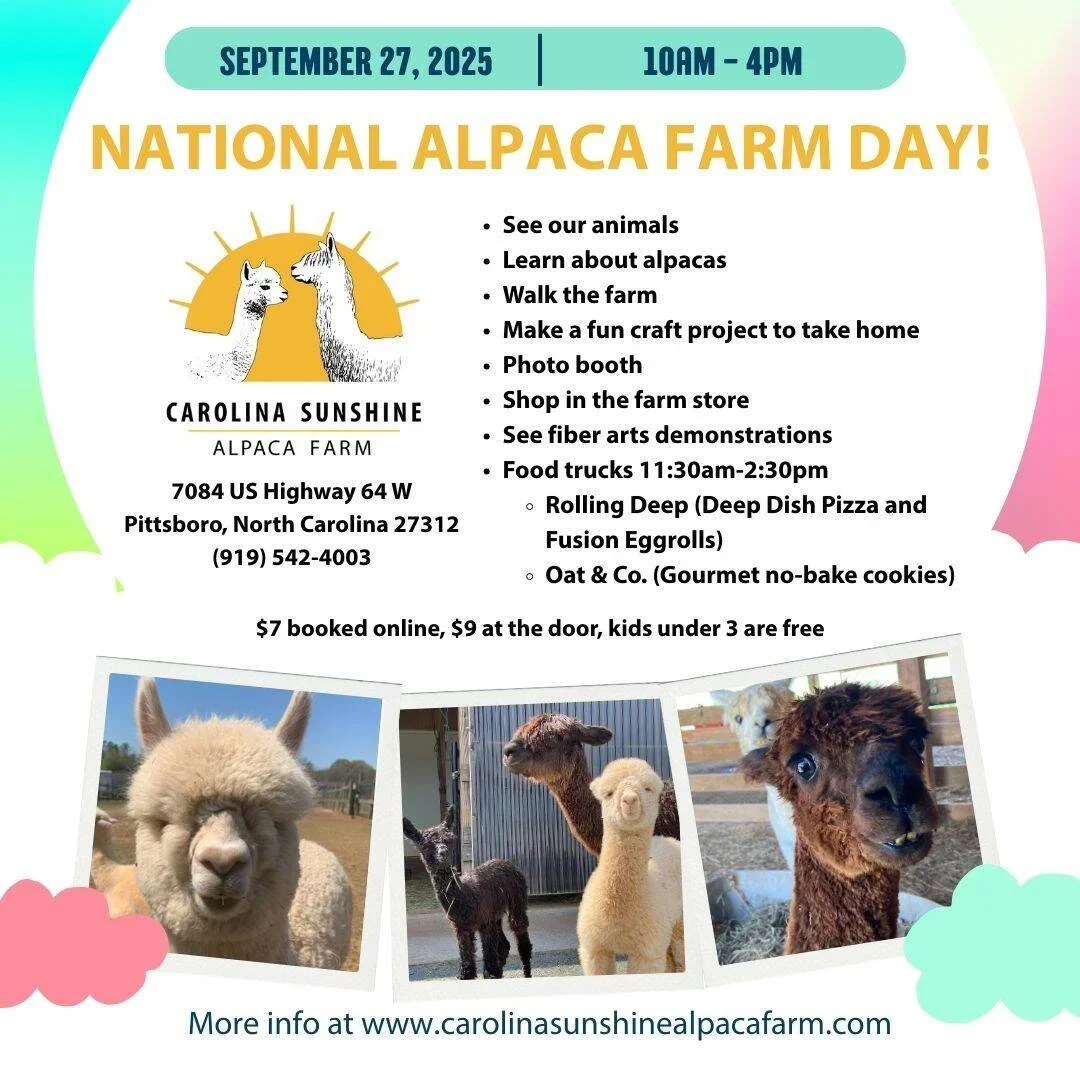
Courtesy Post: Celebrate Alpacas!
Celebrate National Alpaca Farm Day at Carolina Sunshine Alpaca Farm. Stop by the farm and learn more about Alpacas, fiber farming, and more! Come say hello to the baby alpacas (4–7 months old) and the rest of the herd! Wander the farm, learn about these charming creatures, watch fiber arts demonstrations, make a craft to take home, and snap a fun photo at our booth. Play in the bubbles, shop the farm store, and enjoy tasty treats from local food trucks.
Book in advance for $7 or drop in for $9. Kids under 3 are free. Adventure, fun, and alpaca cuddles await!

September Yarn Hall: Building a Community Textile Maker Space
Gather with us to dream up a community fiber studio! Share ideas, weave together, and help shape the future of local making.

Virtual Volunteer Orientation Meet Up
Join our virtual orientation session for more info on how you can help out this fall!

Yarn Hall: Building a Community Textile Maker Space
Gather with us to dream up a community fiber studio! Share ideas, weave together, and help shape the future of local making.

Yarn Hall: Building a Community Textile Maker Space
Gather with us to dream up a community fiber studio! Share ideas, weave together, and help shape the future of local making.

Dyeing with Fresh Leaf Indigo
Dyeing with Fresh Leaf Indigo
Explore several methods for dyeing with fresh-leaf Japanese indigo (Persicaria tinctoria) with textile artist Bethany Hebbard.
In this workshop we will explore several methods for dyeing with fresh-leaf Japanese indigo (Persicaria tinctoria): the “blender” cold-water extraction method and the salt-rub method, as well as techniques for leaf-pounding and stenciling. We will also discuss how to make and use soy milk as both a pre-treatment and post-treatment for textiles dyed with fresh indigo. Participants will practice all the methods presented and will have the option to use these new skills to create a beautiful bandanna or silk scarf. Each participant will receive a Japanese indigo seedling to continue growing and dyeing at home.
Instructor Bethany Joy Hebbard is a knitter, spinner, and dyer who recently moved to the Piedmont from Austin, Texas. While in Austin Bethany was a member of the Austin Weavers and Spinners Guild, focusing on natural dyes in Texas. Since moving to North Carolina she has loved learning which dye plants are best suited to this more temperate climate. Her husband is a permaculture-trained farmer, and together they keep a large garden on their suburban homestead in Jamestown, North Carolina. Since her preschool son and daughter are her typical apprentices, Bethany is very focused on using natural dyes in ways that are child-friendly and safe for home use.

Alpaca Shearing Day at Apple Hill Farm
Apple Hill Farm in Banner Elk, NC is hosting an alpaca shearing day on Saturday, June 7. Make a reservation and join them, any time between 11 and 2! You’ll get a front-row view of the whole process of shearing, fleece sorting, and more. The Piedmont Fiber Guild will also be doing demonstrations on spinning, weaving, and more.
Your pass allows you to get a front row seat to the excitement. We’ll have tour guides on-hand to answer questions about our alpacas and the shearing process. You’ll also be able to browse through our Farm Store, where we sell the yarn and socks made from our alpaca fiber, as well as a large selection of other gifts.
LOCATION: Apple Hill Farm | 400 Apple Hill Rd Banner Elk, NC 28604
PRICE: $5 for ages 4+, $3 for ages 3 and under
